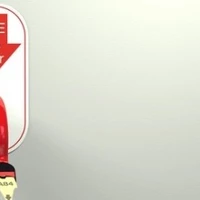There are business lessons to be learned from the Dutch beer industry, because it seems to be one of the few industries which – in spite of domination from powerful players such as Heineken and Bavaria – has seen many individuals starting up successful new breweries. Research by PhD candidate Jochem Kroezen of Rotterdam School of Management, Erasmus University (RSM) shows that the key to successful rejuvenation in this sector is a combination of the resistance of consumers to established brewers, and building on the legacy of old breweries. Kroezen also demonstrates other industries can benefit from his findings on the revitalisation of the brewing sector.
He explains more about his research in this video interview for RSM Discovery.
Over the years, the beer sector in the Netherlands has undergone a renaissance. There were thousands of breweries in the Netherlands in the early Middle Ages producing a rich diversity of beers, but by the 19th and 20th centuries this number was down to only 13 active breweries. Now, there are almost 250 breweries in the Netherlands as small, independent and artisan breweries have started up and reclaimed a share of the market.
How can such a significant recovery happen in a sector so dominated by larger players? In his doctoral thesis titled The Renewal of Mature Industries: An Examination of the Revival of the Dutch Beer Brewing Industry, Kroezen examined approximately 100 new Dutch breweries. He discovered three important reasons why setting up a new brewery holds such appeal to so many people, and why they were so successful.
The first important factor was increasing opposition from consumers that resulted in the founding of the consumers’ association Promotie Informatie Traditioneel Bier (PINT) in 1980. Inspired by a similar British initiative, the Campaign for Real Ale (CAMRA), PINT members conducted a passionate campaign to appeal for existing and new breweries to brew traditional beer. Their campaign included organising the annual PINT Bokbierfestival to celebrate the autumnal brew.
These activities resulted in the emergence of a large and varied group of beer enthusiasts who became potential entrepreneurs, for example the food technician with a calling to brew the perfect beer using only natural ingredients and processes, or the local historian who made it a mission to revive the lost glory of beer. These people see an opportunity to turn their hobby into a profession, and to experiment with new flavours and ingredients. They led to huge growth in the number of breweries and in the diversity of beers. Some of these new breweries are emerging as serious competitors to the major brewers of pilsner.
This success can be attributed to clever use of the legacy of old breweries. Instead of establishing a completely new brewery, brewing entrepreneurs seek out salvageable brewing equipment, old names and old recipes and re-use them.
Using the vestiges of breweries from the past in new enterprises in an established industry kills two birds with one stone. It limits start-up costs by re-using equipment and established expertise, and quickly gains the support of the local community by reusing old names and recipes to create a connected sense of identity with locals and old customers, which also distinguishes the brew from other breweries’ offerings.
Many mature industries have recently experienced a remarkable revival, yet other important industries appear to remain impervious to change. The recent revival of the Dutch beer brewing industry suggests that renewal is more likely in industries that (1) provide actors with a diverse reservoir of authentic identity elements for the formation of new organisational identities, (2) contain a significant number of ancestral organisations that left behind recyclable organisational elements, and (3) harbour a substantial number of actors that adhere to alternative ways of thinking compared to the industry’s “modus operandi”.
Bron: RSM discovery.
Strategie en ondernemerschap zijn belangrijke onderdelen van de Parttime Master Bedrijfskunde, Rotterdam School of Management, Erasmus University. Meer informatie over deze deeltijd opleiding treft u hier of op een van de voorlichtingsavonden.
Gerelateerde artikelen

Wakker liggen voor ondernemers
Wim Aalbers

Leren van een MKB-er
Hans Doorenspleet

Ondernemerschap: De jeugd heeft de toekomst
Wim Hulsink

Regels en ondernemerschap
Frieda van Hartingsveldt



Deel uw ervaringen op ManagementSite
Wij zijn altijd op zoek naar ervaringen uit de praktijk, wat werkt wel, wat niet.
SCHRIJF MEE >>
Als u 3 of meer artikelen per jaar schrijft, ontvangt u een gratis pro-abonnement twv €200,--